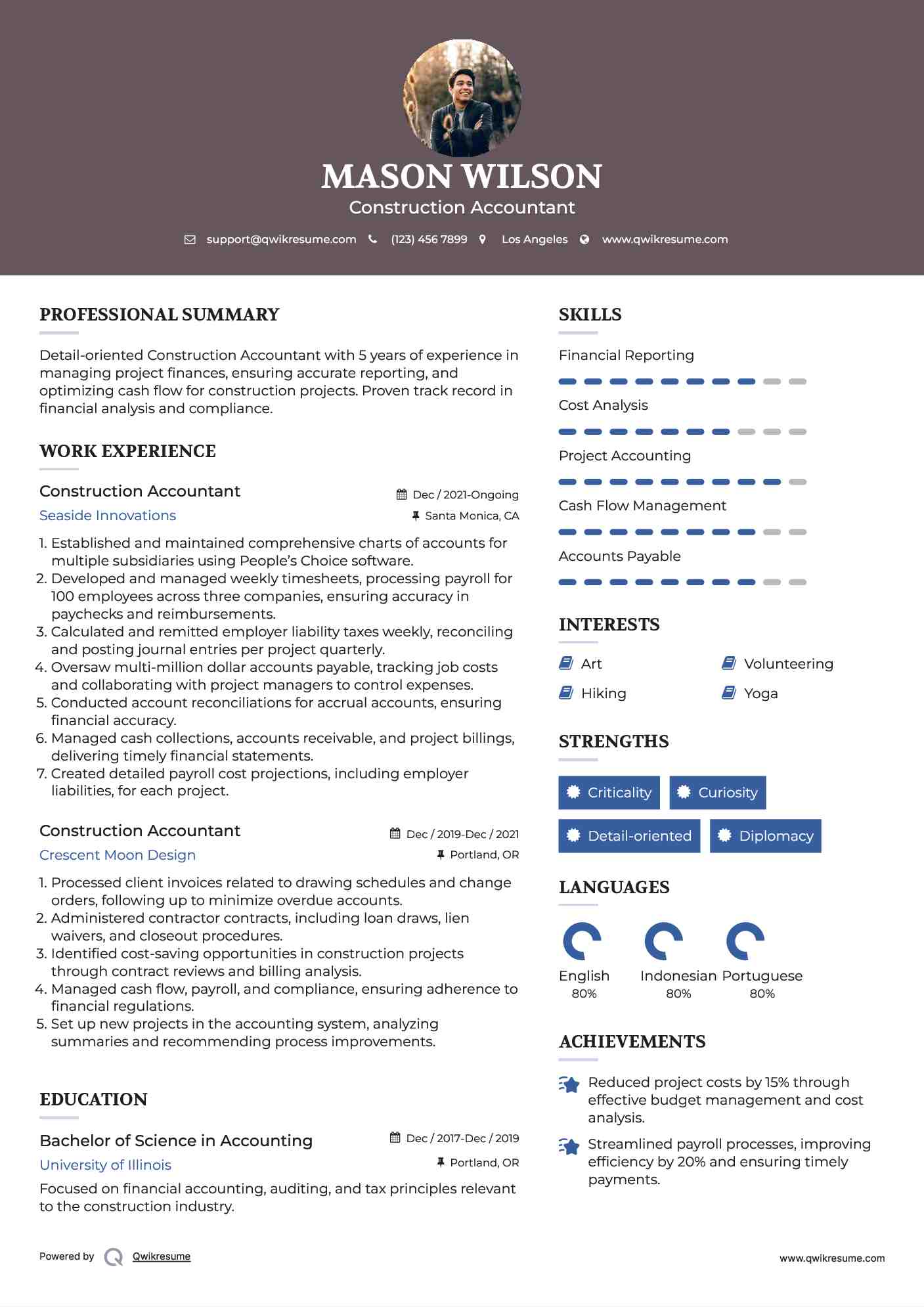The 3-Minute Rule for Pvm Accounting
The 3-Minute Rule for Pvm Accounting
Blog Article
5 Easy Facts About Pvm Accounting Described
Table of ContentsThe Greatest Guide To Pvm AccountingHow Pvm Accounting can Save You Time, Stress, and Money.Little Known Questions About Pvm Accounting.Everything about Pvm AccountingThe Main Principles Of Pvm Accounting Pvm Accounting for Beginners9 Simple Techniques For Pvm AccountingGetting The Pvm Accounting To Work
One of the primary reasons for executing accountancy in construction tasks is the demand for economic control and administration. Construction projects often require significant financial investments in labor, products, devices, and other sources. Correct accountancy enables stakeholders to monitor and take care of these funds successfully. Accountancy systems offer real-time understandings right into task costs, income, and productivity, making it possible for job managers to immediately determine possible problems and take corrective actions.
Construction jobs are subject to different economic requireds and coverage requirements. Proper bookkeeping makes certain that all financial transactions are recorded accurately and that the task complies with accounting standards and contractual agreements.
Pvm Accounting - An Overview
This decreases waste and boosts job performance. To much better comprehend the value of accountancy in building and construction, it's likewise vital to differentiate between construction management accountancy and job management accounting. largely concentrates on the economic facets of the building and construction firm all at once. It takes care of general financial control, budgeting, capital management, and monetary reporting for the whole company.
It focuses on the economic aspects of private building jobs, such as cost estimate, price control, budgeting, and capital management for a certain project. Both sorts of bookkeeping are vital, and they enhance each various other. Construction administration audit makes sure the firm's monetary wellness, while task management accountancy makes certain the economic success of private tasks.
The Facts About Pvm Accounting Revealed

A critical thinker is called for, that will certainly deal with others to choose within their locations of duty and to surpass the locations' work procedures. The setting will interact with state, college controller personnel, campus department personnel, and academic scientists. This person is anticipated to be self-directed once the first discovering curve is conquered.
The Ultimate Guide To Pvm Accounting
A Construction Accountant is liable for managing the economic aspects of building and construction projects, including budgeting, price tracking, economic coverage, and conformity with regulatory needs. They work carefully with task managers, contractors, and stakeholders to make sure accurate financial records, price controls, and prompt repayments. Their competence in building and construction audit principles, project setting you back, and economic analysis is important for effective financial administration within the building and construction sector.

Pvm Accounting Can Be Fun For Anyone
As you've probably learned by now, taxes are an unavoidable part of doing company in the United States. While the majority of emphasis normally rests on government and state revenue taxes, there's also a 3rd aspectpayroll taxes. Pay-roll tax obligations are tax obligations on a staff member's gross wage. The revenues from pay-roll tax obligations are made use of to money public programs; therefore, the funds gathered go straight to those programs rather than the Irs (INTERNAL REVENUE SERVICE).
Keep in mind that there is an extra 0.9% tax for high-income earnersmarried taxpayers who make over $250,000 or single taxpayers making over $200,000. Revenues from this tax obligation go toward federal and state joblessness funds to assist employees who have lost their work.
Unknown Facts About Pvm Accounting
Your deposits should be made either on a monthly or semi-weekly schedulean election you make before each calendar year (construction bookkeeping). Regular monthly repayments - https://businesslistingplus.com/profile/pvmaccount1ng/. A month-to-month payment needs to be made by the 15th of the adhering to month.
So take treatment of your obligationsand your employeesby making total pay-roll tax obligation settlements promptly. Collection and settlement aren't your only tax responsibilities. You'll additionally need to report these quantities (and various other information) regularly to the IRS. For FICA tax (in addition to federal income tax), you should complete and file Form 941, Company's Quarterly Federal Tax obligation Return.
About Pvm Accounting

Every state has its own joblessness tax (called SUTA or UI). This is because your company's sector, years in service and unemployment history can all determine the percent utilized to calculate the quantity due.
All about Pvm Accounting
The collection, compensation and coverage of state and local-level tax obligations depend on the governments that impose the tax obligations. Plainly, the subject of payroll taxes entails plenty of moving parts and covers a large array of audit understanding.
This site utilizes cookies to enhance your experience while you browse through the website. Out of these cookies, the cookies that are categorized as needed are saved on your internet browser as they are vital for the working of fundamental capabilities of the internet site. We additionally make use of third-party cookies that help us assess and understand just how you utilize this web site.
Report this page